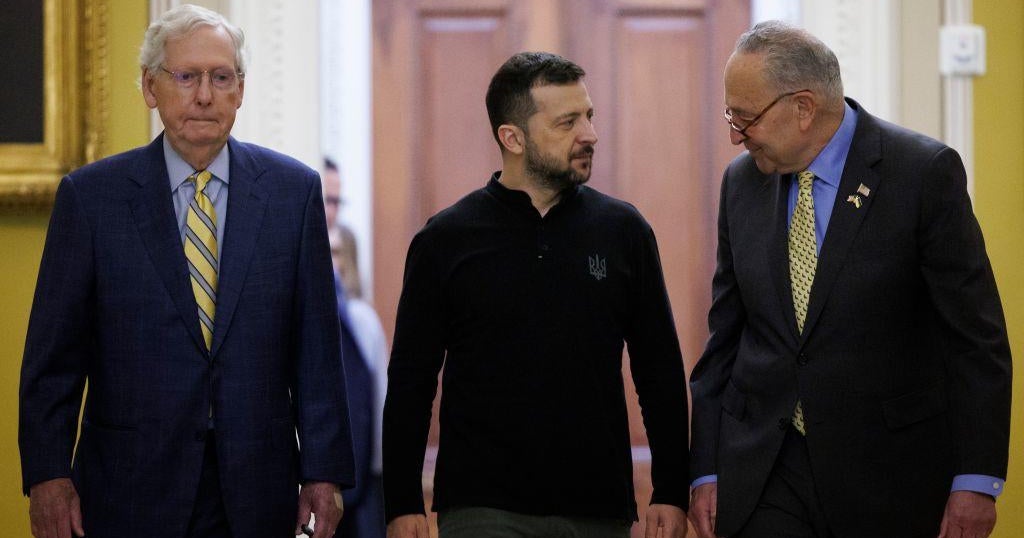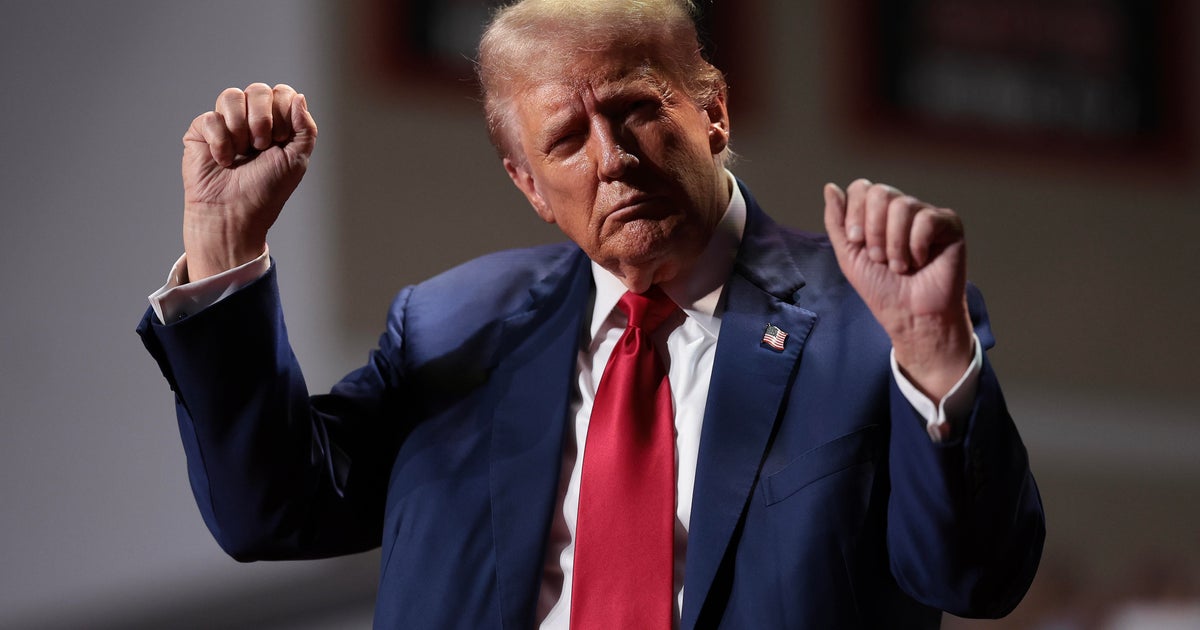CBS News
Trump assassination attempt Secret Service failures, according to Senate report

Watch CBS News
Be the first to know
Get browser notifications for breaking news, live events, and exclusive reporting.
CBS News
Trump Media & Technology Group investor sold more than 7 million shares of DJT
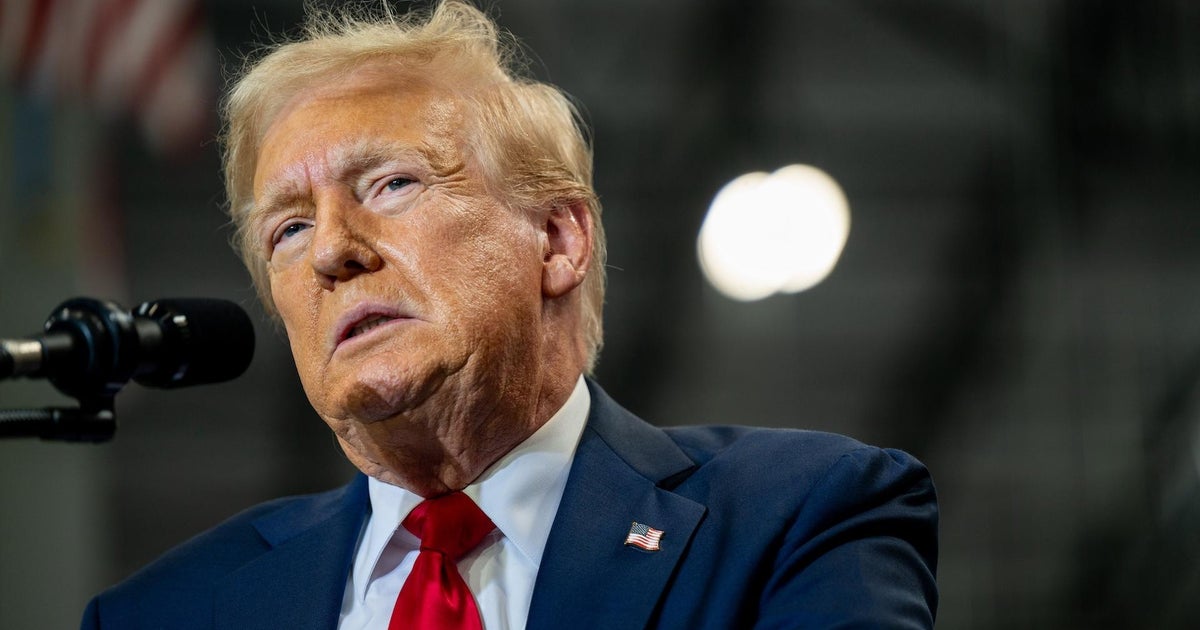
One of the biggest investors in Trump Media & Technology Group has sold more than 7.5 million shares in former President Donald Trump’s Truth Social service, according to a new regulatory filing.
The investor, United Atlantic Ventures, owned 7.525 million shares in Trump Media as of March, or about 4% of the company’s outstanding shares, according to financial data firm FactSet. Trump is the company’s largest shareholder, holding about 60% of the stock, which trades under the ticker “DJT,” the same as Trump’s initials.
“As of the date of this filing, United Atlantic Ventures LLC owns 100 shares,” the filing states.
United Atlantic Ventures is the creation of two former contestants on “The Apprentice,” the reality show that starred Trump starting in 2004. Those ex-contestants, Andrew Litinsky and Wes Moss, had worked on the debut of the Truth Social network, but the relationship between the pair and the business soon soured, spinning into multiple lawsuits.
In March, a day before the DJT stock went public, Trump Media sued Litinsky and Moss, alleging they mismanaged the business and should be stripped of their shares. As part of their initial deal with Trump, the co-founders had received 8.6 million shares of Trump Media.
Meanwhile, Litinsky and Moss had filed an earlier complaint in February to prevent the former president from taking steps they claimed would sharply reduce their stake in Trump Media.
It’s unclear when United Atlantic Ventures sold the shares, but the filing comes after the expiration of a lock-up period that prevented insiders including Trump from selling their stakes. Such lock-up provisions are common in initial stock sales to prevent big shareholders from dumping their shares on the market, which would undercut the stock’s price.
Trump Media & Technology Group didn’t immediately respond to a request for comment.
If United Atlantic Ventures sold its shares on September 20, the first day after the expiration of the lock-up period, the sale proceeds would have amounted to $102 million. However, DJT shares slid over the following several days, hitting a low of $11.75 on September 24. At that price, the value would have dropped to $89 million.
Since hitting a low on September 24, DJT shares have rebounded slightly, ending trading Thursday at $14.13. But the stock has lost much of its value since its debut, plunging 82% since its peak of $79.38 on March 26.
CBS News
Gov. Newsom signs law to shed light on state storage of newborn DNA, prompted by 10-year CBS News California investigation
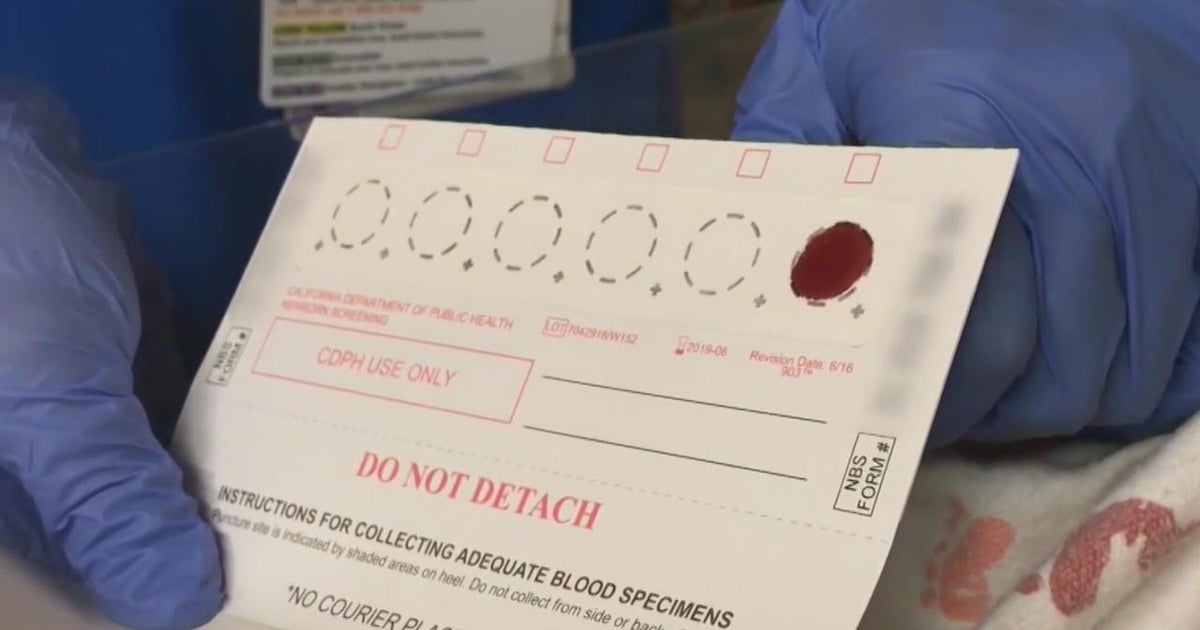
Gov. Gavin Newsom signed a bill (SB 1099) Wednesday prompted by a decade-long CBS News California investigation into California’s newborn genetic biobank.
We still won’t know who is using your DNA for research, or what the research is for, but the California Department of Public Health must now reveal the number of newborn DNA samples that California is storing and the number of DNA samples that the state sells to researchers each year.
California has stored blood spots from every baby born in the state since the 1980s. Researchers and law enforcement can use those DNA samples without your knowledge or consent.
If you’re related to someone who was born in California since 1983, a portion of your DNA is likely in the state’s massive Newborn Genetic Biobank. In response to our decade-long investigation, lawmakers introduced several bills this year that were intended to shed light on how the state is amassing and using California’s newborn DNA stockpile.
SB 1099 was the only bill to survive the legislative session.
While privacy advocates say it is a step in the right direction, recent amendments raise new questions about the appearance of state secrecy.
The initial bill was heavily amended to remove the requirements for the state to reveal which researchers are purchasing the DNA and what they are using it for.
Privacy advocates plan to try again next year.
See our continuing coverage on newborn blood spot privacy concerns here.
Learn more about newborn bloodspot storage and how to opt out of storage or research here.
CBS News
Special counsel files critical brief in Trump’s D.C. case, but it remains under seal
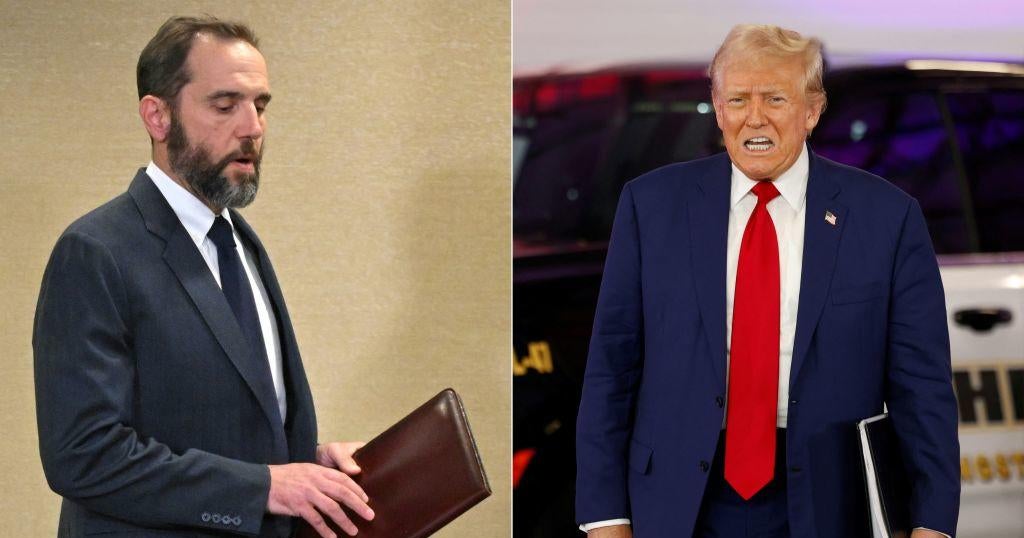
Washington — Special counsel Jack Smith has filed what is expected to be a key legal brief in the federal case against former President Donald Trump related to the 2020 presidential election, but kept it under wraps as the judge weighs the next steps.
Smith’s filing, which prosecutors said would run up to 180 pages, is expected to provide the most comprehensive look at the evidence federal prosecutors have compiled in their case against Trump, which was upended by the Supreme Court’s landmark decision on presidential immunity. The filing was submitted to the U.S. District Court for the District of Columbia on Thursday. The court set a deadline of 5 p.m. for the filing.
“We have complied with the court’s order,” the special counsel’s office said in a statement.
The former president pleaded not guilty to four counts arising from what the special counsel alleges was an unlawful scheme to overturn the results of the 2020 election to hold on to power for four more years.
The filing, as well as any accompanying exhibits, could give the public its most substantial window into the special counsel’s investigation into Trump’s alleged efforts to subvert the transfer of power, if the document or portions of it are made available. It contains a “substantial amount” of sensitive information, such as recordings, transcripts and reports of witness testimony that typically is kept secret, Smith’s team said in a separate filing.
Smith’s team filed the document under seal, meaning it was not released publicly. Whether the submission is made available — and when — will be up to U.S. District Judge Tanya Chutkan, who is presiding over the case.
Trump’s 2020 election case
Smith initially brought charges against Trump in August 2023, but a federal grand jury returned a new indictment narrowing the allegations last month after the Supreme Court ruled that the former president is absolutely immune from prosecution for official actions taken while in the White House.
The decision has led to additional proceedings before Chutkan, who must now consider whether the newly alleged conduct can give way to criminal charges in compliance with the Supreme Court’s opinion.
Federal prosecutors have argued the new indictment adheres to the high court’s decision and stressed that Trump was acting as a candidate seeking the presidency rather than the office-holder. Among the allegations that Smith and his team have made is that the former president enlisted Vice President Mike Pence to unilaterally reject state electoral votes during a joint session of Congress on Jan. 6, 2021, which he presided over in a ceremonial role as president of the Senate.
But Trump’s lawyers have asserted that those communications with Pence are subject to immunity and therefore cannot be used in the case against him. They have indicated that they will seek to have the entire indictment tossed out on those and other grounds.
The two sides appeared before Chutkan earlier this month for their first meeting since the Supreme Court’s landmark ruling to hash out a schedule for how the case should move forward. While Trump’s lawyers had proposed a series of deadlines that would push proceedings into 2025, the judge adopted a schedule that sees most filings submitted before the November election.
The path Chutkan laid out means the public could learn more about Smith’s case against the former president, and the evidence he has amassed, before Election Day. Trump is vying for a second term in the White House and is locked in a tight race with Vice President Kamala Harris, with the election now less than six weeks away.
If Trump wins, he could order the Justice Department to seek to drop the charges against him.
Lawyers for the former president have argued that evidence gathered by the special counsel and his team should not be made public before the election and raised concerns to Chutkan about potentially damaging information coming to light as voters begin casting ballots.
The judge, though, has made clear that the upcoming election will not factor into her decision-making, though she said earlier this month that setting a trial date would be an “exercise in futility.”
Any decision Chutkan makes about whether the conduct alleged in the new indictment is covered by presidential immunity will likely be appealed up to the Supreme Court.
In the opinion authored by Chief Justice John Roberts, the conservative majority laid out three categories of presidential acts and corresponding levels of immunity. Actions taken within a president’s exclusive constitutional authority are entitled to absolute immunity, official acts are entitled to the presumption of immunity and unofficial acts are not entitled to immunity at all.
The Supreme Court wiped away one aspect of the indictment under its new standard, finding that Trump is shielded from criminal charges for alleged conduct involving his discussions with Justice Department officials. But they left it to the district court to determine whether a prosecution involving the rest of Trump’s alleged actions, including the efforts to influence Pence’s oversight of Congress’ certification of electoral votes, is allowed.
Chutkan said in a filing earlier this week that she is conducting a “close” and “fact specific” analysis of the indictment’s allegations, as directed by the Supreme Court.
contributed to this report.


